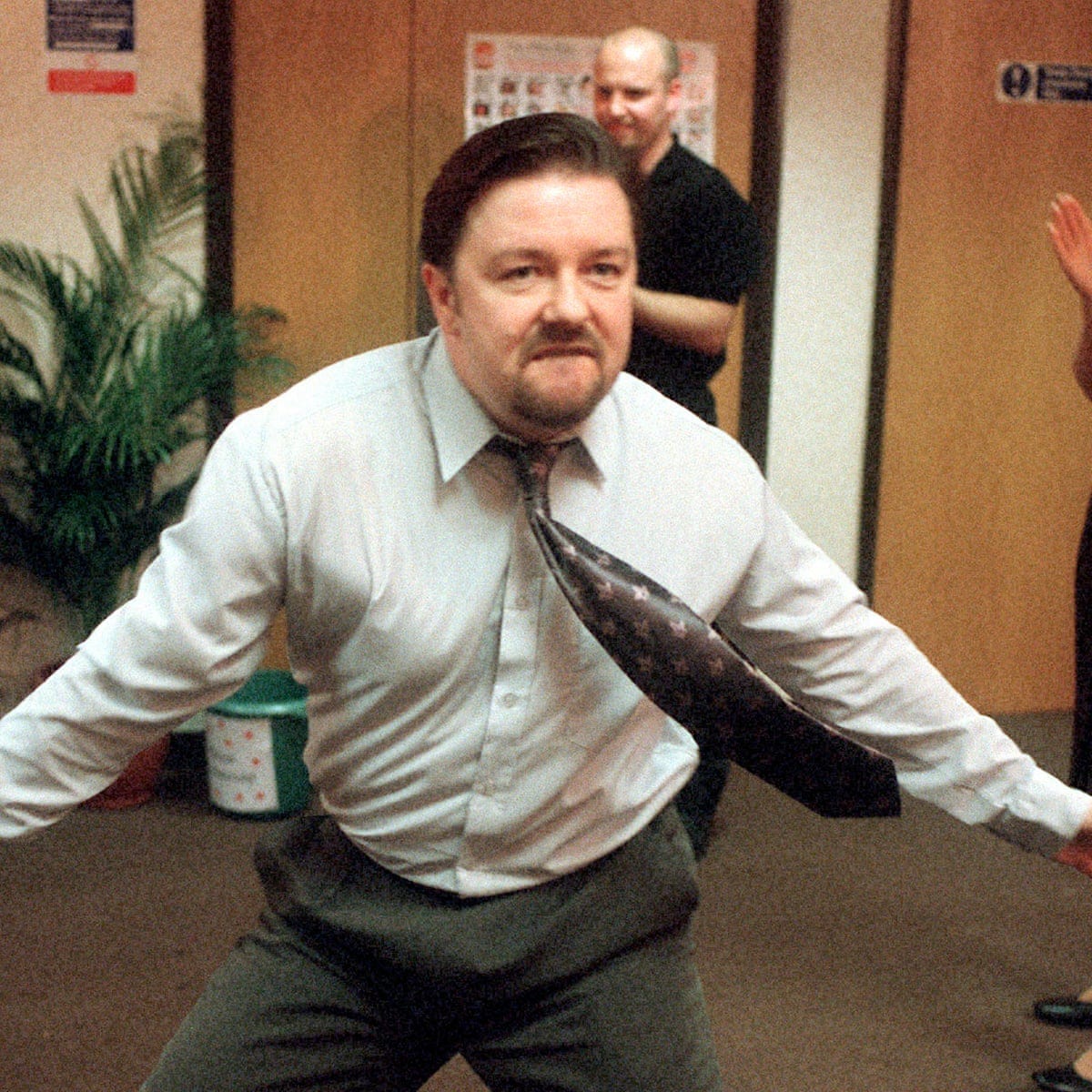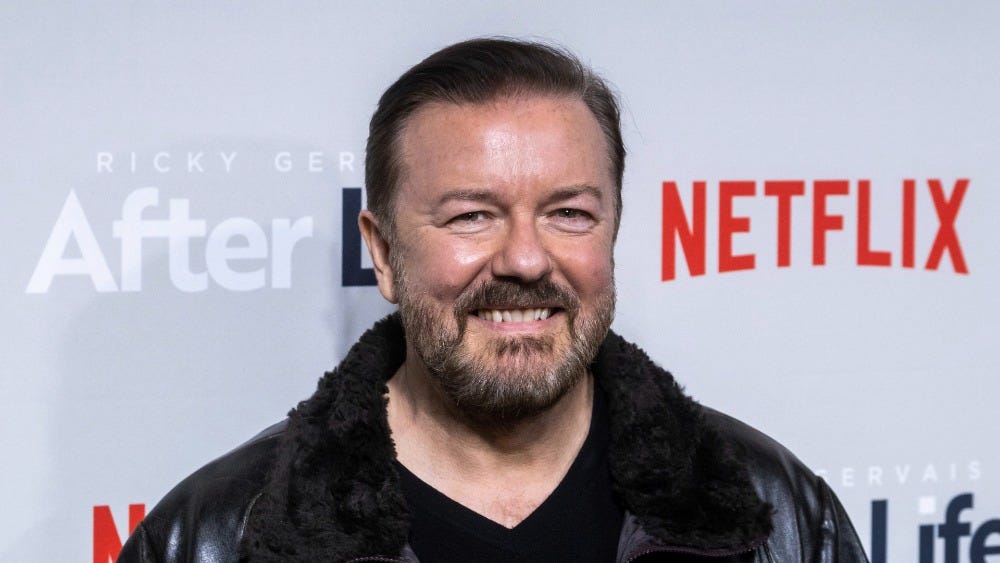Ricky Gervais' Smug, Cruel, Tired and Bored Humour Ruins What Was Once A Decent TV Show: Why After Life Season Three Stinks
Sounds Good!
I haven’t always had a problem with Ricky Gervais. I was a big fan of The Office – who wasn’t? I think Extras was possibly better, smarter. And, at the time, I was even into his stand-up comedy specials. Each one arriving with special-club buzz. They haven’t aged well. They weren’t really great at the time. But it was cult of personality stuff. And I won’t pretend I wasn’t ever on board with it.
I always found him horrible and annoying in his sneery interviews, his Twitter presence is shameful, and I’ve mostly avoided his attempts at driving any of the Hollywood vehicles thrust his way once success hit.
And Derek was unwatchable. So, um, I didn’t watch it.
But After Life seemed like a back-of-the-net shot, kicked from halfway even. When it debuted in 2019 it was easy to munch. Season two was solid as well. The hallmarks of his humour were there, some still a little irksome, sure. But there was something different about After Life – it was still annoyingly pleased with itself (that’s one of those hallmarks I guess) but you were sucked in by the fact that it had a heart. (I think that’s the great trick with Extras also).
Usually, Gervais has done two seasons and moved on – that’s been the praise showered on him. Both The Office and Extras knew when to sign off, which makes them rewatchable and influential.
Well, this weekend season three of After Life arrived on Netflix.
To say that it’s a flop is being very kind.
There will be fans happy to spend some time with the characters that were built up over seasons one and two. A deadpan Diane Morgan (best known as the character Philomena Cunk, and for other work with Charlie Brooker) is always a delight. But season three of After Life is very quickly excruciating. And the lack of care or attention – or development – for those characters is hack-like.
It plays out with all the smugness of a man merely taking the money and completing an order of episodes.
Main character, Tony, was always a mouthpiece for the more annoying aspects of the Ricky Gervais Twitter-feed: God can’t be real because no one has seen him so there’s no spirituality or soul in this world, gender isn’t a construct – it’s assignment, so deal with it, etc.
A privileged, white male tosspotting-off about what bugs him – and he’s allowed to because he’s grieving. That’s the nutshell. Tony is as much of a c/nt as he calls everyone else. But he’s sad. His partner died of cancer. And he is stuck in a loop of home video footage, can’t move on, can’t find joy and we are expected to still find something profound about his struggle. And to most certainly roll with his jerk behaviour – because you can’t know what everyone in the world is going through.
But we do know – with Tony. It’s spelled out over and again. Written on nice white walls in bright orange crayon.
By season three it’s merely a man being a jerk through boredom. It’s quicksand TV and there are no strong emotional notes here at all.
To make sure of this, I stayed up and watched it all in one go. I hade to be sure it was over.
This might make me a sucker. But I was baffled by how bad season three was – whole story arcs lost forever, never explained, and then a lazy attempt at some tied-up happiness in the finale. All the characters finding something or someone and the job done. Apparently. But no questions answered.
The best and only really good thing about it is the news that this is absolutely the final season.
There are brilliant characters from season one and two that are mentioned in season three but we never see them – there are others like the nurse Emma (the brilliant Ashley Jensen, also the best thing about Extras) who goes from being the beacon of hope to, well, basically just an extra…
Season three has Gervais ticking off more things from his absurd list of grumbles. Miserable about a dad making baby-noises in a café, annoyed about a car driving through a pedestrian crossing, still banging on about God and the soul and the absence of both. It’s served up in a way that might make some sure that he’s profoundly stirring the point, pointing out that we’re all flawed and that life is here for living – so make the most of it, even through the trudge.
But some are also sure that Joe Rogan is a pundit and a prophet.
Season three of After Life is a one-sided stroll through the mind of a bored and privileged writer that knew he could serve up anything. It actually gets worse with each episode. Feeling, by the end, like the homework assignment done on the night it was due – the Netflix deadline loomed, so he started writing in a flurry and had a few okay notes to start, but by the end of episode six we haven’t met with every character we were supposed to, Tony’s behaviour can no longer be explained away by grieving, the comedy foil bit-parts from rather excruciating set-pieces are too unrealistic to ever actually exist and not funny enough to pass as send-up.
It’s a crude farce at best.
And so what, anyone very anti-Gervais might say.
But season one (and two) of After Life had something.
All season three can offer is the proof that Gervais’ shows have usually been confined to two seasons for very obvious reasons.






Just finished it. Yep. Felt like a rushed homework assignment. The lack of development of Gervais character was so disappointing. The heart attack hospital scene was crass
Great review. So accurate.